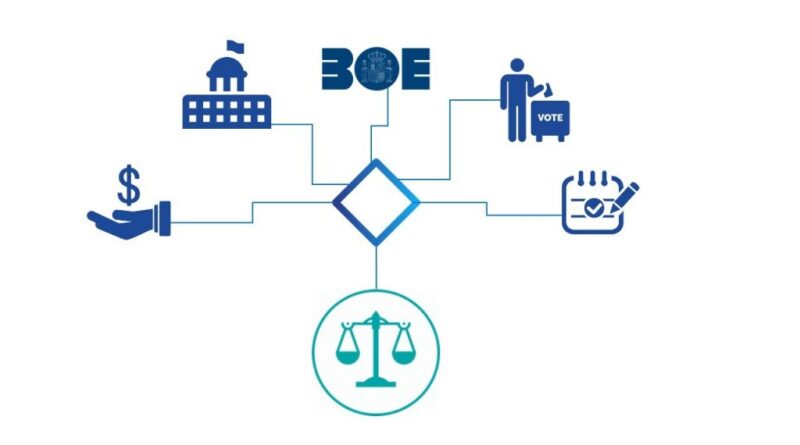US Department of Commerce to Deploy Blockchain for Data Reporting
In an announcement from the White House cabinet meeting on Tuesday, Howard Lutnick, Secretary of Commerce, unveiled plans to revolutionize the way the US Department of Commerce presents economic statistics. This will be achieved by deploying blockchain technology to publish official GDP data, among other economic figures, enhancing accessibility and reliability.
The innovative strategy will initially focus on disseminating gross domestic product information using blockchain’s secure and efficient data distribution mechanism. As the program matures and establishes success, it could potentially extend to other areas within government agencies, transforming the way public data is shared.
This new endeavor is not yet fully detailed out; the preparatory stage involves finalising all the intricate mechanisms it requires to ensure seamless functioning. But the promise it holds has already sparked a significant degree of interest and anticipation.
The embrace of blockchain technology isn’t an entirely new concept in public administration globally. Some foreign governments have already reaped the benefits of blockchain technology. Their success stories could be valuable learning resources for the U.S. Department of Commerce.
Estonia emerged as an early adopter in 2016 when its government integrated the KSI blockchain from Guardtime into its e-Health system. By managing patient healthcare records on a blockchain platform, Estonia took a significant leap to speed up its administrative processes and improve data security.
In the United States, the concept of leveraging blockchain technology on a government-wide scale has been discussed previously. However, these instances remained largely theoretical and never managed to take off on a concrete platform.
In April 2024, Robert F. Kennedy Jr., an erstwhile Presidential contender, shared his vision of enhancing government transparency. Kennedy proposed to put the entire federal budget on the blockchain, ensuring an unprecedented level of visibility and accountability.
Elon Musk, prior to an unfortunate public disagreement with President Trump, also held a prominent role as the head of the Department of Government Efficiency. He too considered integrating blockchain technology to augment the government agency’s transparency. Despite his influence, this initiative did not materialize.
Despite the fact that the Department of Commerce has not publicly provided information concerning the specific blockchain network earmarked for this initiative, the tech community and other stakeholders await this detail with bated breath. What’s more, there’s also anticipation around how the move will propel the objectives of the Commerce Department and other state agencies.
This commendable venture, if successful, would engrave a significant milestone in the history of American government administration. This would stand as one of the pioneering major implementations of blockchain technology for the U.S government’s economic reporting techniques.
The recent announcement reflects the Trump administration’s bold and ambitious plans to welcome and integrate blockchain technology into government operations. This illustrates a steadfast commitment to harnessing the power of emerging technologies to boost economic transparency and enhance public trust in government administration.
With the rise of cryptocurrencies globally, this latest move could potentially help the U.S. government keep pace with the digital revolution and promote the integration of forward-thinking technology in their system.
However, for all its promise, the endeavor to publish economic data via blockchain isn’t without its hurdles. The practical and logistical challenges of implementing this transformative technology in large institutions such as the government must not be underestimated.
As the Department of Commerce moves towards the implementation of this bold new agenda, observers are keen to understand how this drive will impact the relationship between government and technology. More specifically, the way this move could reshape the future of public administration.
Despite the lingering uncertainties and detail gaps, the intention to deploy blockchain technology for economic data reporting shines a spotlight on the relentless pursuit of technological advancement in public administration. It adds optimism for a future where government transparency is not just an ideal, but a practicable norm.



